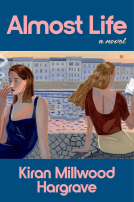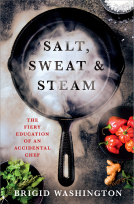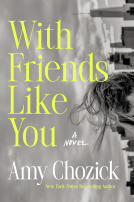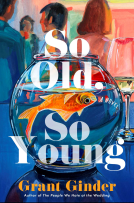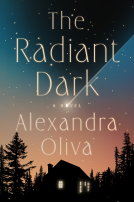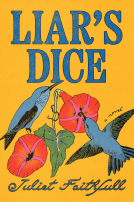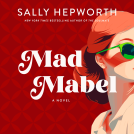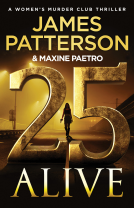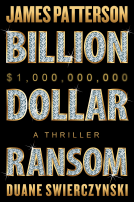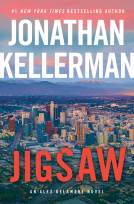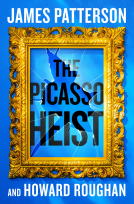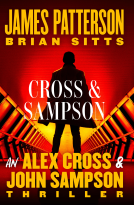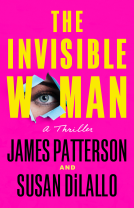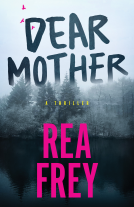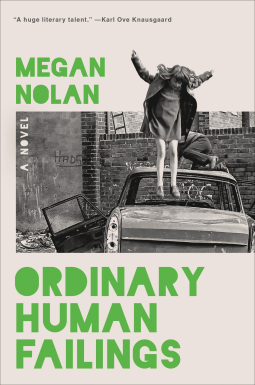
Ordinary Human Failings
A Novel
by Megan Nolan
This title was previously available on NetGalley and is now archived.
Send NetGalley books directly to your Kindle or Kindle app
1
To read on a Kindle or Kindle app, please add kindle@netgalley.com as an approved email address to receive files in your Amazon account. Click here for step-by-step instructions.
2
Also find your Kindle email address within your Amazon account, and enter it here.
Pub Date Feb 06 2024 | Archive Date Nov 19 2025
Description
FINALIST FOR THE FALLON BOOK CLUB SELECTION
It's 1990 in London and Tom Hargreaves has it all: a burgeoning career as a reporter, fierce ambition and a brisk disregard for the "peasants" -- ordinary people, his readers, easy tabloid fodder. His star seems set to rise when he stumbles across a sensational scoop: a dead child on a London estate, grieving parents beloved across the neighborhood, and the finger of suspicion pointing at one reclusive family of Irish immigrants and “bad apples”: the Greens.
At their heart sits Carmel: beautiful, otherworldly, broken, and once destined for a future beyond her circumstances until life - and love - got in her way. Crushed by failure and surrounded by disappointment, there's nowhere for her to go and no chance of escape. Now, with the police closing in on a suspect and the tabloids hunting their monster, she must confront the secrets and silences that have trapped her family for so many generations.
Available Editions
| EDITION | Other Format |
| ISBN | 9780316567787 |
| PRICE | $27.00 (USD) |
| PAGES | 224 |
Available on NetGalley
Average rating from 101 members
Featured Reviews
 Patti T, Bookseller
Patti T, Bookseller
This was such tough subject and hits on so many things that are front of mind. Why are people obsessed with true crime? Does the media manipulate the news as well as the victims and families involved in a crime.? The characters are so well written and so real with all their faults and mistakes.
 Librarian 940930
Librarian 940930
This was really a terrific, humane, moving, gripping novel that I think many US readers will devour. The subject matter is bleak but it's also compelling, readable, and insightful. It's very different from Nolan's debut, Acts of Desperation. and largely in a good way. It's a short book, but I spread it over the course of a couple of nights and found myself thinking of the characters during the day. readers who enjoyed Acts for the moving and intelligent way it dealt with human emotional states will likely enjoy this too.
 Tim J, Educator
Tim J, Educator
Ordinary Human Failings is a significant leap for Megan Nolan, whose first book Acts of Desperation was one of the better examples of what America’s Poster Laureate Joyce Carol Oates disparagingly referred to as “wan little husks of autofiction,” a fairly recent trend in publishing where a lot of young writers are publishing novels that are transparently memoirs. This all sounds like an extended backhanded compliment, but parts of Acts hit me so deeply that I still haven’t forgotten them despite having read it years ago; Nolan is to this day the only writer I’ve seen give voice to an unconsidered belief I’d seemingly always had about how being in love fixes every problem including boredom: “Being with other people was, to me, the feeling of being realised. This was why I wanted to be in love. In love, you don’t need the minute-to-minute physical presence of the beloved to realise you. Love itself sustains and validates the rotten moments you would otherwise be wasting while you practise being a person, pacing back and forth in your shitty apartment, holding off till seven to open the wine.” The belief in love as a cure for all ills and the interrelationship between sorrow and physical body seem to be Nolan’s pervading interests, and in Failings she’s able to investigate these concepts while achieving the daunting task of drawing an intricate cast of deeply broken people. This is exactly what you want from someone who showed talent and promise without taking a lot of risks in their first book: a big swing that connects.
Failings is pitched like it’s going to be a meta-true-crime book like Eliza Clark’s recent, excellent Penance but it is actually using the incident of young Lucy (accidentally? intentionally?) killing another child as the first in a series of investigations of a family where each member is haunted by a single life-altering event from which they will not recover. The book smartly refuses to even imagine the idea that there’s something these people can do to “fix” the impact that unintended motherhood, alcoholism, or being so jealous that you drive the people essential to your happiness away has had on them. It’s a brave choice to depict these things without the resolution or lesson that any reader comes to expect after years of familiarity with stories in general, but Nolan is here to excavate the inner reaches of quotidian suffering, not dispense hope.
This story is not in the genre called Body Horror but I can’t recall the last time I read a book so indexical and exacting in its descriptions of the various horrors occurring inside of one’s body (and I have read David Cronenberg’s novel). Alcoholic brother Richie undergoes the torture of alcohol-dependency-induced bowel discomfort and the attendant paranoid fear that whatever that feeling is might be the thing that kills you in your early 20s. His addiction breaks his body down over time just as it does his personal life, where he destroys a positive social circle in pursuit of slightly more drink for a party. In the early section focused on Carmel, Lucy’s mother, we’re given an empathetic and utterly gut-wrenching depiction of the havoc her unwanted teenage pregnancy wreaks on her body. In this passage: “She put two fingers to the flighty pulse in her throat, pressing hard against it and overcome by the idea she was pumping blood into what would be a child. It was a terrible thought. She wanted immediately to block off her arteries and blood cells and oxygen altogether rather than let it continue,” there’s a real sense of the terror that the film Alien is about, of pregnancy as parasite, feeding off its mother. Against the backdrop of 70s Ireland, where abortion was fully illegal, the sale of contraception was prohibited, and married women were legally barred from working, Nolan has you feeling the walls closing in around Carmel as she sees her hopes for anything beyond young single motherhood evaporate. And her resistance to this leads to the height of discomfort in the book as she drunkenly tries to administer her own abortion, which you know will not succeed from page 1 of the book, but you’re still holding out hope because Nolan has made you love this poor girl. She cries every time she attends a film, she is deliriously in love with the unfortunate father of the child, and any chance she had at a self-determined happiness is gone.
When father John learns of his first wife’s infidelity, the realization’s consequences are depicted entirely bodily: “He put a hand on his chest trying to ground himself, and thought of the words ‘nervous system’. He had thought of nerves quite frequently since his accident, because of some of those in his hand being demolished, but he had never felt aware before of having a nervous system. He thought of how his mother would say about her friends and neighbours that some of them ‘suffered from nerves’ and he saw now how dully literal that phrasing really was. He could feel signals firing off into every part of his body, trying to warn his brain that something was terribly wrong.” In every case there is a deep physicality to the emotional pain the characters feel, something greatly refreshing in a time when most novels and indeed entertainment in general is about the (admittedly very real) stultifying melancholia that pervades the present moment. These people are not dead inside, they are struggling to live.
In Ordinary Human Failings the question “why go on?” is hardly important, “how am I going to go on?” is what it’s after, a much more material question. I find this deeply admirable and courageous, as there’s no end of successful “I’m tired” writers at present, reflecting a broad cultural sentiment back to the people who feel it. Failings is, in its bleak way, rather heartening. The characters do not, in any way, triumph over adversity. But do you? How many triumphs would you say you’ve had in your life, and did they directly solve any of your problems in a neat and satisfying manner? This book is the way life is, and it’s a real achievement.
Readers who liked this book also liked:
James Patterson; Duane Swierczynski
General Fiction (Adult), Mystery & Thrillers

